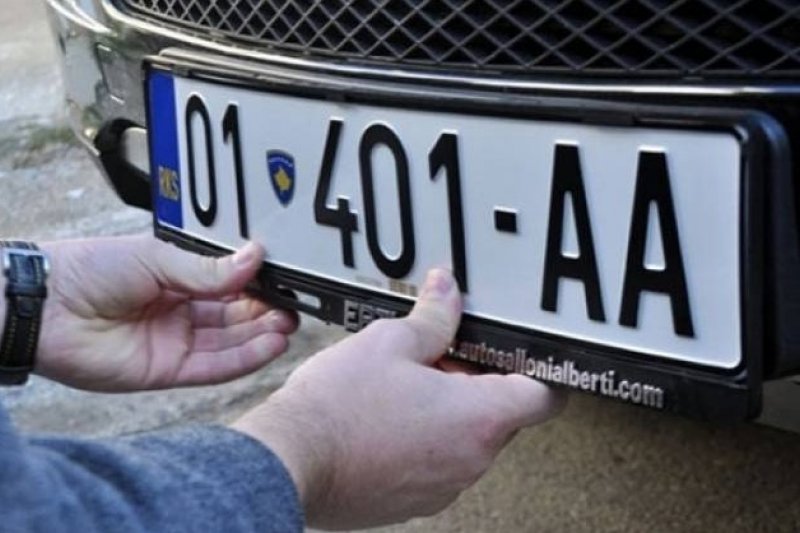Kosovo Serbs Warn of Blocking Roads Again If License-Plate Deal Not Extended
The head of the main Serb political party in Kosovo has warned that members of the Serb minority will again block roads if Kosovar authorities do not agree to again delay the implementation of a rule under which ethnic Serbs must switch their car license plates to local ones.
In July, Kosovo's government declared Serbian identity documents and vehicle license plates would no longer be valid on Kosovo territory.
The move has been met with strong and sometimes violent resistance by ethnic Serbs who live in the northern part of the country.
The government in Pristina agreed to extend until the end of October the deadline for the change of license plates after Serb protesters put up roadblocks and fired their guns into the air and in the direction of Kosovo police officers during the July standoff. No one was injured.
Prime Minister Albin Kurti earlier this week announced the deadline will still expire at the end of the month despite calls by Kosovo's main backers, the United States and the European Union, to delay the rule for 10 months and avoid ethnic tensions.
"We already delayed the deadline.... The last date is October 31 when all Kosovo citizens who have old automobile plates, which are a legacy of the Milosevic era, will be able to convert them into legitimate ones," Kurti told reporters in Pristina on October 25, referring to late Yugoslav President Slobodan Milosevic.
The announcement prompted Goran Rakic, leader of the Serbian List party, to announce on October 27 that Kosovar Serbs will again block roads in northern Kosovo if authorities in Pristina decide to confiscate vehicles with Serbian license plates.
Rakic was speaking after talks in Belgrade with Serbian President Aleksandar Vucic.
"If Pristina starts enforcing the confiscation of vehicles, we will block all crossings and entrances from the north to central Kosovo," Rakic told a news conference in Belgrade.
Rakic said he assured Vucic there will be no violence as ethnic Serbs will "use all democratic and peaceful means" to resist the move.
Kosovo and Serbia fought a bloody war in 1998-1999, with Kosovo eventually declaring independence from Serbia in 2008.
Ethnic Serbs in the north of Kosovo have been using car plates issued by Serbian institutions since the end of the war with acronyms of Kosovo cities, such as KM (Kosovska Mitrovica), PR (Pristina), or UR (Urosevac).
The government in Kosovo regards the plates as illegal but until now has tolerated them in four northern municipalities with Serb majorities.
Serbia -- as well as Russia, China, and five EU member states -- has not recognized its former province's independence and accuses Pristina of suppressing the rights of minority Serbs, who account for 5 percent of Kosovo's 1.8 million population, which is 90 percent Albanian.
(Source: Radio Free Europe)













